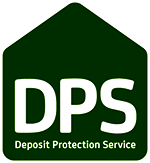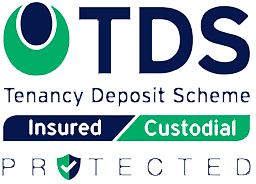How Often Should You Inspect Your Rental Property?
10/05/2021
How Often Should You Inspect Your Rental Property?
POSTED : 20/04/2021 | BY ALICE DAVIES
As a landlord, especially a new landlord, it can be tricky to know how often to check on your property and the tenants inside. If you’ve had bad experiences with tenants before, you may be tempted to try and inspect every month - but this can infringe on the rights of the tenant and create a tension between landlord and tenant right from the very beginning.

Inspecting your property every 3 - 6 months is a good timeframe to ensure any repairs are being undertaken and that your tenants are happy. Visiting more often can frustrate tenants, especially if they have to take time out of work to ensure they’re in for you to visit.
Anything longer than 6 months, even if you feel comfortable with your tenants, could mean that important repairs aren’t addressed, leading to expensive costs in the long run. Although your tenant has a responsibility to report any repairs, sometimes things get missed, which is where inspections come in.
Below, we’ve outlined some advice on property inspections and how to approach them.
ALWAYS LET YOUR TENANTS KNOW
To avoid any awkward conversations down the road, let your tenants know before they move in that you will be undertaking ongoing inspections. This then means they won’t be surprised when you do request an inspection time, nor will they be surprised at how many inspections they should expect throughout the tenancy period.
Remember, what might seem like a reasonable time to you to go round and inspect, may not be a reasonable time for your tenants. They may work night shifts or have children with requirements, so ensure you’re respectful of this if a tenant declines your initial inspection.
RESPECT YOUR TENANTS RIGHT TO ‘QUIET ENJOYMENT’
Tenants have the right to quiet enjoyment, which means they shouldn’t be harassed or bothered by the landlord or management company / agency, without prior notice of visits. Always put everything in writing, even if you’ve outlined the amount of inspections you’ll be undertaking in the tenancy agreement.
An email or letter advising tenants on when they can expect the first inspection is courteous and won’t lead to a bad relationship with your tenants down the line. It also allows tenants to make arrangements for being in the property when the inspection occurs, or ensuring everything is clean and tidy for when the landlord or letting agent visits.
Giving your tenants at least 48 hours notice for a routine inspection is important. However, even if a tenant agrees to the inspection at that point, they can still refuse you entry when you turn up. Although this can be frustrating, you still need to respect your tenants rights.
REVIEW HOW OFTEN YOU INSPECT
If you do have reliable and trustworthy tenants, it may be worthwhile reviewing how often you check in. Every three months can seem excessive and unnecessary if, every time you go, things are clean, tidy and there are no issues. Your tenants will appreciate less intrusion and may be more likely to renew their tenancy if they know they won’t be subject to quarterly reviews.
Remember, keeping in touch with your tenants ensures you maintain a healthy relationship and means your tenants are more likely to feel comfortable informing you about any repairs or problems - as well as extending their tenancy agreement. If tenants can see the inspections are more about the property and not about how they’re living, they will feel more relaxed and open to them.
It also shows you care about your property and the living conditions of your tenants. Showing you’re human means your tenants will be able to relate to you and talk more openly. This helps when it comes to tenancy renewals, or if a tenant decides to leave - they’re much more likely to give you longer notice
Back to Blog






















